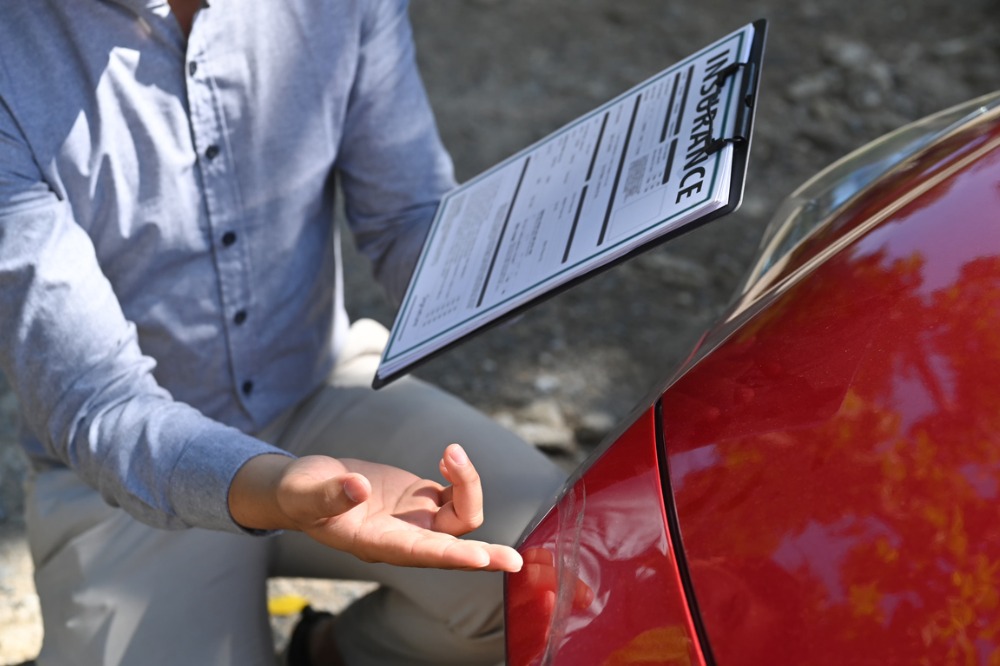
Florida car storage insurance is a vital consideration for anyone storing their vehicle in the Sunshine State. Whether you’re moving, undergoing repairs, or simply taking a long break, having the right coverage can safeguard your investment from unexpected events. This guide explores the various types of car storage insurance available, the situations where it’s essential, and how to find the best policy to suit your needs.
Understanding the different coverage options, such as comprehensive, collision, and liability, is crucial for making an informed decision. Factors like the type of vehicle, storage location, and coverage level significantly impact the cost of car storage insurance. It’s essential to carefully evaluate your specific circumstances to determine the appropriate level of protection.
Understanding Florida Car Storage Insurance
Florida car storage insurance is a specialized type of coverage designed to protect your vehicle while it’s in storage. It safeguards your car from various risks, including theft, vandalism, fire, and natural disasters. This insurance is particularly important for car owners in Florida due to the state’s vulnerability to hurricanes and other weather events.
Types of Car Storage Insurance Policies
Similar to traditional auto insurance, car storage insurance offers different types of coverage to suit various needs and budgets. The most common types of policies include:
- Comprehensive Coverage: This type of coverage protects your car from a wide range of risks, including theft, vandalism, fire, natural disasters, and other perils. It also covers damage caused by falling objects, hail, and other weather events.
- Collision Coverage: This coverage protects your car from damage caused by collisions with other vehicles or objects. It covers repairs or replacement costs, regardless of who is at fault.
- Liability Coverage: This coverage protects you from financial losses if you are found liable for an accident while your car is in storage. It covers damages to other vehicles or property, as well as medical expenses for injured parties.
Coverage Options and Benefits
Car storage insurance policies typically offer a range of coverage options to customize your protection. These options include:
- Agreed Value Coverage: This option provides coverage for the agreed-upon value of your car at the time you purchased the policy. This is beneficial for classic cars or vehicles with high sentimental value.
- Actual Cash Value (ACV) Coverage: This option provides coverage for the current market value of your car, minus depreciation. It’s typically a more affordable option than agreed value coverage.
- Rental Reimbursement: This coverage helps pay for a rental car if your vehicle is damaged or stolen while in storage.
- Towing and Labor Coverage: This coverage helps pay for towing and labor costs if your vehicle needs to be transported for repairs or other reasons.
- Emergency Roadside Assistance: This coverage provides assistance in case of a flat tire, dead battery, or other roadside emergencies.
Factors Influencing the Cost of Car Storage Insurance
Several factors can influence the cost of car storage insurance in Florida, including:
- Vehicle Type: The make, model, year, and value of your car can significantly affect the cost of insurance. High-value vehicles, such as luxury cars or classic cars, typically have higher premiums.
- Storage Location: The location of your storage facility can impact your insurance costs. Facilities in high-risk areas, such as areas prone to hurricanes or theft, may have higher premiums.
- Coverage Level: The level of coverage you choose will also influence the cost of your policy. Comprehensive coverage is typically more expensive than liability coverage.
- Deductible: Your deductible is the amount you pay out of pocket before your insurance coverage kicks in. A higher deductible typically leads to lower premiums.
- Driving History: Your driving record can affect your insurance premiums, even though your car is in storage. A history of accidents or traffic violations may lead to higher premiums.
When is Car Storage Insurance Necessary in Florida?

Car storage insurance is an essential component of protecting your vehicle while it’s not in use. In Florida, a state known for its unpredictable weather and potential for natural disasters, car storage insurance provides crucial financial protection against unexpected events that could damage your vehicle. While you may think that your car is safe while it’s in storage, it’s important to consider the potential risks and ensure that you have adequate coverage.
Situations When Car Storage Insurance is Essential
Car storage insurance becomes essential in Florida when you face situations that increase the risk of damage or loss to your vehicle.
- Storing a Classic or Vintage Car: Classic and vintage cars are often highly valuable and require specialized care. Car storage insurance can cover damages caused by fire, theft, vandalism, and even natural disasters, ensuring that your prized possession is protected.
- Storing a Vehicle for an Extended Period: If you’re planning to store your car for a significant amount of time, such as during a relocation or while you’re traveling, car storage insurance is crucial. It provides coverage for potential damages that could occur while the vehicle is inactive, such as rust, rodent infestation, or even unexpected weather events.
- Storing a Vehicle in a High-Risk Area: Florida is prone to hurricanes, floods, and other natural disasters. If you’re storing your car in a high-risk area, car storage insurance is vital to safeguard your investment against potential damage.
Examples of Scenarios Where Car Storage Insurance Could Be Beneficial, Florida car storage insurance
Car storage insurance can provide peace of mind in various scenarios where your vehicle is at risk.
- A Hurricane Strikes: Imagine your car is stored in a garage that gets damaged during a hurricane. Car storage insurance can cover the cost of repairs or replacement, ensuring that you’re not left financially burdened.
- A Fire Breaks Out: A fire in the storage facility could cause significant damage to your car. Car storage insurance provides financial protection against such events, covering the cost of repairs or replacement.
- Theft Occurs: While your car is in storage, it’s not immune to theft. Car storage insurance can help replace your stolen vehicle, ensuring that you’re not left without transportation.
Risks of Storing a Car Without Insurance in Florida
Storing a car without insurance in Florida exposes you to significant financial risks.
- Damage from Natural Disasters: Florida’s hurricane season poses a significant threat to vehicles in storage. Without insurance, you’ll be responsible for all repair or replacement costs, which can be substantial.
- Theft or Vandalism: Car storage facilities aren’t always immune to theft or vandalism. Without insurance, you’ll be responsible for any losses or damages incurred.
- Unexpected Events: Accidents, fires, or other unforeseen events can occur at storage facilities. Without insurance, you’ll bear the full financial burden of any damages.
Legal Implications of Driving a Stored Car in Florida
Florida law requires all vehicles driven on public roads to be registered and insured. Even if your car is primarily stored, you may need to obtain temporary insurance coverage if you plan to drive it occasionally. Failure to comply with these regulations can result in fines and penalties.
Finding the Right Car Storage Insurance in Florida

Finding the right car storage insurance policy in Florida involves careful consideration and comparison of different options. This ensures you have adequate coverage to protect your vehicle while it’s not in use.
Evaluating Car Storage Insurance Policies in Florida
When evaluating car storage insurance policies in Florida, it’s crucial to have a checklist to ensure you’re making an informed decision. This checklist should include:
- Coverage for specific risks: Determine if the policy covers risks specific to car storage, such as theft, vandalism, fire, natural disasters, and environmental damage.
- Agreed value coverage: This type of coverage ensures you receive the agreed-upon value of your vehicle in case of a total loss, regardless of depreciation.
- Deductible options: Explore different deductible options and choose one that aligns with your budget and risk tolerance.
- Policy duration: Compare policy durations and select one that matches your storage period. Some policies offer flexibility in terms of coverage periods.
- Premium costs: Analyze premium costs and compare them across different providers to find the best value for your coverage needs.
- Customer service and claims process: Evaluate the provider’s customer service reputation and claims handling process. This helps ensure a smooth experience if you need to file a claim.
- Exclusions and limitations: Carefully review the policy’s exclusions and limitations to understand what’s not covered. This prevents surprises if a claim arises.
Comparing Car Storage Insurance Providers in Florida
Several insurance providers specialize in car storage insurance in Florida. Each provider offers unique features and benefits.
- AAA: AAA provides comprehensive car storage insurance, including coverage for theft, fire, vandalism, and natural disasters. They also offer agreed value coverage and flexible policy durations.
- State Farm: State Farm offers car storage insurance as part of their comprehensive auto insurance policies. They provide coverage for various risks and offer competitive premiums.
- Progressive: Progressive provides car storage insurance with options for agreed value coverage and customizable deductibles. They also offer online quoting and policy management tools.
- Geico: Geico offers car storage insurance with coverage for theft, fire, and vandalism. They also provide flexible policy durations and competitive premiums.
Key Features and Benefits of Car Storage Insurance Options
The table below highlights key features and benefits of different car storage insurance options in Florida.
| Provider | Coverage | Agreed Value Coverage | Deductible Options | Policy Duration | Premium Costs | Customer Service |
|---|---|---|---|---|---|---|
| AAA | Comprehensive | Yes | Various | Flexible | Competitive | Excellent |
| State Farm | Comprehensive | Yes | Various | Flexible | Competitive | Good |
| Progressive | Comprehensive | Yes | Customizable | Flexible | Competitive | Good |
| Geico | Basic | No | Limited | Flexible | Competitive | Good |
Negotiating Car Storage Insurance Rates in Florida
Negotiating the best car storage insurance rates in Florida requires proactive efforts. Here are some tips:
- Shop around: Get quotes from multiple providers to compare rates and coverage options. This helps you find the best value for your needs.
- Bundle your policies: If you have other insurance policies, such as homeowners or renters insurance, consider bundling them with your car storage insurance. Many providers offer discounts for bundling.
- Increase your deductible: A higher deductible typically results in lower premiums. Choose a deductible you’re comfortable with, but keep in mind that you’ll be responsible for paying this amount if you file a claim.
- Ask about discounts: Inquire about any available discounts, such as safe driver discounts, good student discounts, or multi-car discounts.
- Negotiate with your existing provider: If you’re already a customer with a provider, don’t hesitate to negotiate a better rate. Explain your situation and ask for a price adjustment.
Additional Considerations for Florida Car Storage Insurance

When considering car storage insurance in Florida, it’s essential to delve deeper into specific factors that can significantly impact your coverage and protection. Understanding the role of the Florida Department of Motor Vehicles (DMV), Florida’s unique car storage insurance laws, potential risks, and best practices for safeguarding your vehicle are crucial steps in securing adequate insurance for your stored car.
The Role of the Florida Department of Motor Vehicles (DMV)
The Florida Department of Motor Vehicles (DMV) plays a crucial role in regulating car storage facilities and ensuring compliance with state laws. While the DMV doesn’t directly mandate car storage insurance, it does enforce regulations that indirectly influence the need for such insurance. For instance, the DMV requires car storage facilities to have adequate liability insurance to cover potential damages to stored vehicles. This means that if your car is damaged while in storage due to negligence on the part of the facility, you might be able to file a claim with their insurance provider. However, it’s important to remember that liability insurance typically only covers damages to other vehicles or property, not to your own car. Therefore, having your own car storage insurance is still essential for comprehensive protection.
Florida’s Car Storage Insurance Laws and Regulations
Florida has specific laws and regulations regarding car storage insurance. These laws define the minimum coverage requirements for storage facilities and Artikel the rights and responsibilities of both storage facility owners and car owners. It’s essential to familiarize yourself with these laws to ensure you understand your coverage and rights. For example, Florida law requires storage facilities to provide a written contract outlining the terms of storage, including liability limitations and any additional fees. This contract should be reviewed carefully before storing your car to avoid any misunderstandings or disputes later.
Potential Risks of Storing a Car in Florida
Florida’s climate and geographical location pose unique challenges for car storage.
- Theft: Florida has a relatively high rate of vehicle theft, making it crucial to choose a secure storage facility with adequate security measures like surveillance cameras, fencing, and lighting.
- Vandalism: Unfortunately, vandalism is a risk in any location, and Florida is no exception. Choose a facility with a good reputation and security measures to minimize this risk.
- Natural Disasters: Florida is prone to hurricanes, floods, and other natural disasters. If your car is stored in an area susceptible to these events, it’s essential to have insurance that covers damage caused by natural disasters.
Best Practices for Safeguarding a Stored Car in Florida
To mitigate potential risks, consider these best practices:
- Choose a reputable storage facility: Research facilities thoroughly, check online reviews, and inquire about their security measures, insurance policies, and customer service.
- Prepare your car for storage: Clean your car thoroughly, remove all valuables, disconnect the battery, and consider using a car cover for added protection.
- Document the condition of your car: Take detailed photographs and videos of your car before storing it, including any existing damage or wear and tear. This documentation can be crucial if you need to file an insurance claim.
- Regularly check on your car: Visit your car at least once a month to ensure it’s in good condition. Check for any signs of damage, leaks, or other issues.
- Keep your insurance policy up-to-date: Review your car storage insurance policy regularly to ensure it meets your current needs and covers any potential risks.
End of Discussion
Securing the right Florida car storage insurance is essential for protecting your vehicle while it’s not in use. By understanding the available options, considering your specific needs, and navigating the legal requirements, you can make an informed decision that provides peace of mind. Remember, proper insurance coverage can alleviate financial burdens and safeguard your investment against unforeseen events.
Common Queries
How long does my car need to be stored to require insurance?
While there’s no set timeframe, it’s generally recommended to have car storage insurance if your vehicle will be stored for an extended period, such as a few months or longer. This ensures protection against potential risks like theft, vandalism, or natural disasters.
Can I use my regular car insurance for storage?
Your regular car insurance may not provide adequate coverage for a stored vehicle. It’s essential to check your policy’s terms and conditions or contact your insurer to confirm if storage is covered. Specialized car storage insurance offers more comprehensive protection.
What if I need to drive my stored car occasionally?
If you plan to drive your stored vehicle occasionally, inform your insurance provider. Some car storage policies include limited driving coverage, while others may require you to purchase separate temporary insurance.
How do I find the best car storage insurance rates?
To find the best rates, compare quotes from multiple insurance providers specializing in car storage. Consider factors like coverage options, deductibles, and discounts. Negotiating with insurers and exploring potential savings options can also help you secure a competitive rate.





